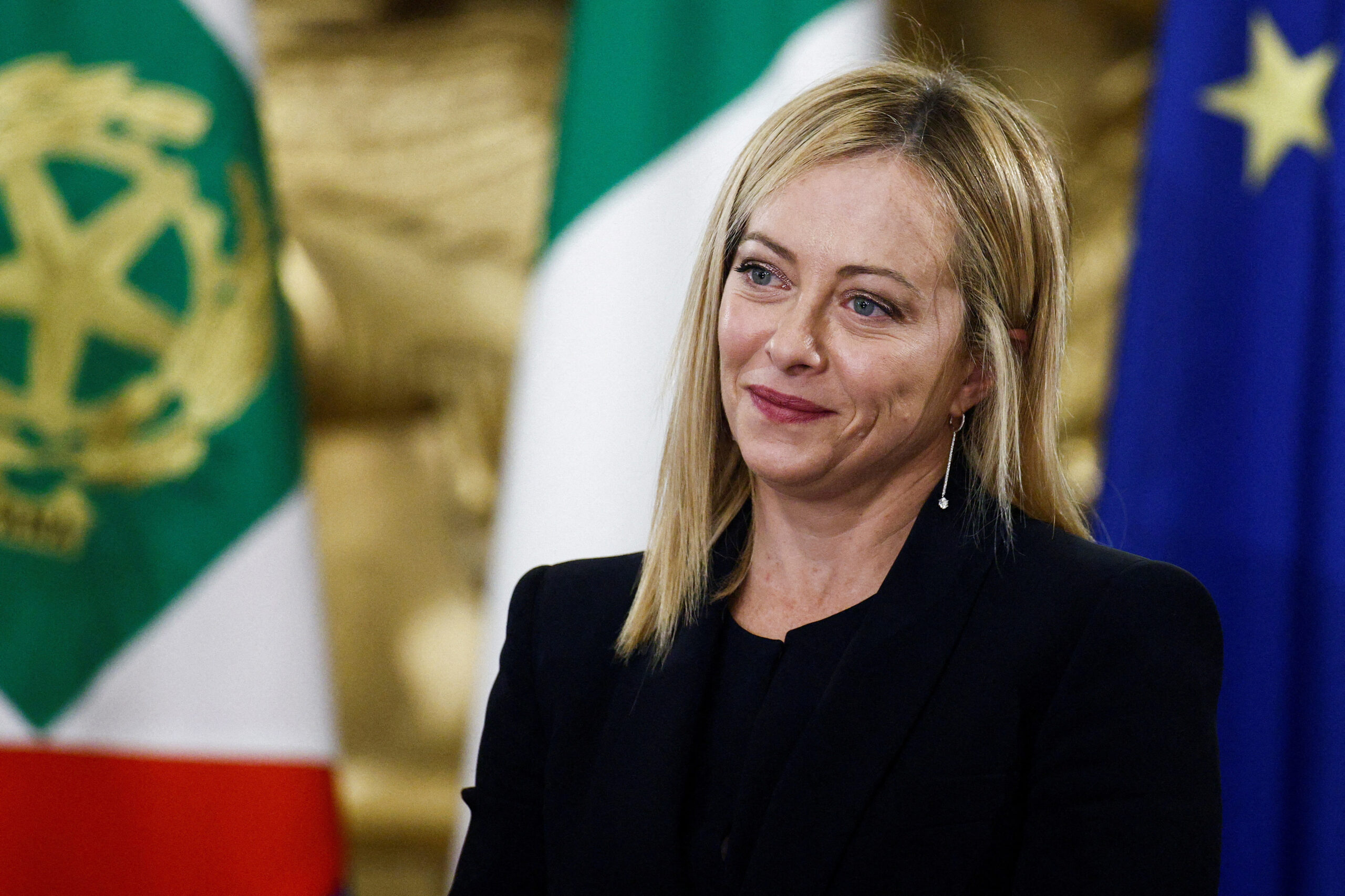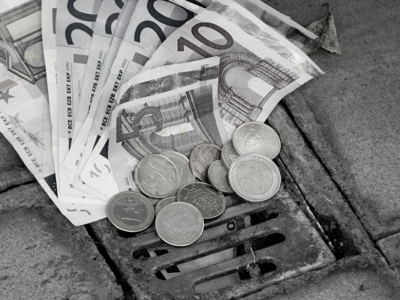The new Giorgia Meloni’s government and Italian Geopolitics (II): The foreign policy of Giorgia Meloni

19/12/2022
In the first installment of this series we defined the geopolitical scenario where the new Italian government will have to deploy its foreign policy strategy. We can now move on to dealing with the priorities of Meloni’s government and its foreign policy agenda.
Giorgia Meloni’s foreign policy
Foreign policy is a key point for the future stability of the new Italian government and where there are most risks of the executive splitting. The reason is that the Italian electoral system forces political parties to form coalitions to win elections. This has led to scenarios with governments in diverging positions on foreign policy and above all, on the geopolitical axes Italy should be working on. In this government, despite the fact that the three forces declare they are Atlanticist and in principle in favor of maintaining Italy in the EU, we must point out that both Salvini’s Lega and Berlusconi’s Forza Italia maintained positions close to Russia before the invasion of Ukraine.
In the middle of the election campaign, Berlusconi defended Putin by saying that he “was pushed into a dramatic situation” and that “the two republics of the Donbass were to blame for the military invasion by going to Moscow to talk to the Russian stakeholders; the press and the factions of the United Russia party and who had subsequently formed a delegation to speak to the Russian President requesting help in defending against Zelensky’s attacks, which had already caused 16,000 pro-Russian casualties in Donbass.” Berlusconi’s argument in favour of Vladimir Putin was that the Russian president “had been pushed by the people, by his party and by his ministers, to come up with this special operation in which Russian troops had to enter Ukrainian territory and within a week reach Kiev to replace Zelensky’s government with decent people and in another week turn back.” These words by Silvio Berlusconi were at the centre of the controversy in the 2022 general elections and can be interpreted as an attempt by Berlusconi to exonerate Putin from responsibilities in the war and give him a dignified way out.
Later in the ongoing government negotiation, audios of Silvio Berlusconi were leaked where, in an assembly with the Forza Italia (FI) deputies, Volodymyr Zelensky was again attacked. Berlusconi stated “I don’t see how Putin and Zelensky can come to a negotiating table. Because there is no way. Zelensky, in my opinion… forget it, I cannot say it …’. The FI deputies then immediately applauded the speech by their leader.
Despite this, the Lega and FI have always voted in favour of economic sanctions against Moscow, but without any enthusiasm. It is therefore to be seen whether there is a government crisis during its term of office because of the relations with Russia.
On the other hand, Meloni has been very determined in her foreign policy priorities and has clearly set out the points: Atlanticism and war in Ukraine, Mediterranean, European Union. As far as Atlanticism is concerned, since the start of the war, she has publicly been in favour of sending arms to Ukraine and increasing Italian military spending. Faced with Berlusconi’s statements justifying Putin, she was very clear: “Those who do not share Atlanticism are outside the government, even if that means not forming it.”
As far as the war is concerned, this means maintaining the commitment to military aid for Kyiv, support for NATO policies in response to the Russian military offensive against Ukraine, and in general, cooperation within the framework of the Atlantic Alliance.
With regard to the Mediterranean, the new government is aiming on the one hand to stabilise relations with Libya in order to manage migratory crises, and on the other, to exploit the natural gas deposits in the Mediterranean region. On this point, mention should be made of the work of ENI. The Italian energy giant is working with great difficulty on gas explorations in the Cyprus Exclusive Economic Zone (EEZ). The reason for this is that this EEZ is an area in dispute with Turkey. Ankara has not hesitated to use its navy as a deterrent to hamper Italian interests. Erdogan’s geopolitical plan dubbed “Mavi Vatan” (Blue Fatherland) in its maritime dimension, comes into conflict with the sites where ENI works and will be the source of future disputes with Italy.
Regarding the European Union, the main issue besides energy will be the implementation of the EU’s Next Generation recovery package. We will also have to be alert to the particular position of the new Italian government in Brussels: Everything points at demands from the Italian side to deepen economic integration on specific issues, while at the same time going against further centralisation at the political and judicial levels in the EU.
One of the foreign policy opportunities that the Meloni government will have will be to strengthen alliances with the US and France.
With the U.S., the Meloni government has the chance of creating the strongest and narrowest alliance of any other Italian executive to date. From the outset, there are no strategic contradictions. They are the only party in parliament that has not maintained or defended close relations with either Russia or the People’s Republic of China, considered systemic threats and revisionist powers by Washington. This strategic coherence is certainly seen favourably by the USA and could be rewarded with greater involvement on the Mediterranean front for example.
Remember that Washington does not have a specific strategy for the Mediterranean, which it currently considers secondary in terms of regional priorities. After the Cold War, and especially since Barack Obama’s presidency, their attention has pivoted to the Indo-Pacific in order to contain China’s expansion as an emerging maritime power. This has created a geopolitical vacuum which has encouraged regional powers such as Turkey and also Russia to increase their presence and role in the Mediterranean area, with a clear geopolitical interest of a revisionist nature and with a clear intention to change regional balances. Let us not forget that on a geostrategic level the importance of the Mediterranean is crucial as it is a maritime passage connecting the Atlantic Ocean with the Indo-Pacific. Greater involvement by the US in support of Italian interests in the area and full strategic harmony between the two countries could turn Italy into a Mediterranean Poland, given the increasingly important role that country plays in Central and Eastern Europe with the US.
Macron’s France and Meloni’s Italy, allies or rivals?
As far as France is concerned, the new Italian government has the opportunity to promote a major strategic alignment, for a rebalancing of the Franco-German axis in the EU, and for jointly tackling the challenges that have arisen in its strategic Mediterranean environment and which affect both countries.
Macron’s France has a medium- and long-term paradigm that can be synthesised in the title of the book published by its Minister of Economy Bruno Le Marie in 2019: Le Nouvel Empire. L’Europe du vingt-et-unième siècle. Le Maire advocates the construction of an “imperial” Europe capable of playing a role between China and the US. The aim of this project is to place France as the spearhead of the European Union, but there should be a third country that acts as a counterweight to the Paris-Berlin axis. This is where Italy would come into play.
Since the founding of the Kingdom of Italy, thanks in part to French military and economic support in an anti-Austrian key, bilateral diplomatic relations have been numerous in many areas. Without going into the scenario of the first half of the 20th century, and taking as its starting point the creation of the Italian Republic in 1948, it should be noted that both countries are founding members of the western European space and are founding members of the European political construction project, from the ECSC of the Treaty of Paris in 1951 through to the EEC of the Treaty of Rome of 1957, and on to the Maastricht Treaty of 1992 and the creation of the European Union.
The nature of the relationship has been characterized as a complex and asymmetrical alliance. France was both an ally and an adversary. It has tended to explicitly project its political and economic influence onto the transalpine country. It wanted Italy as an ally, but at the same time tried to make it a French satellite by competing with the so-called Italian ‘Paese System’. The “Paese System” is the public-private strategy for the projection of Italy into the world to promote its economic interests above all. There are points of contention between Italy and France which should be mentioned:
Firstly, there is a geoeconomic clash. Unlike Germany, which has created a relationship of economic interdependence of the services sector and the manufacturing industry in north-central Italy, which is part of the German industrial system, France has a methodology that we could define as predatory. They do not want to create economic interdependence with Italy but to take over the assets of the Italian industrial and service sectors through direct investments in partly-owned companies, controlling them from France.
There is also a second breaking point in the strategy for the Mediterranean area, especially as regards Libya. Remember that the Élysée presided over by Sarkozy was behind the fall of the Gaddafi regime, and Italian interests in Libya were badly damaged. On the other hand, the Russian and Turkish presence in Libya could be a factor in Franco-Italian cohesion. There could also be an area of cooperation in terms of energy, as the interests of ENI and Total often converge in the eastern Mediterranean and have Turkey as a potential common adversary.
Thirdly, there is the management of the permanent humanitarian crisis taking place in the Mediterranean, with the arrival of immigrants on boats off the Italian coast. This factor has led to the new Italian government’s first diplomatic conflict with Paris. Last November, a diplomatic crisis broke out between Italy and France over the landing of the ship Ocean Viking, owned by the NGO SOS Mediterranée. The French government took in the immigrants “exceptionally” as the Meloni government prevented it from docking in an Italian port, but threatened “extremely serious consequences in bilateral and European relations”. The first reaction of the French government was to suspend the so-called “Voluntary Solidarity Mechanism,” which provides for the relocation of 10,000 migrants per year in Europe by sea and in which thirteen member states participate.
The French rescue of Ocean Viking has fractured the Paris–Rome relationship considerably and undermines Giorgia Meloni’s normalization efforts. Less than a month ago, Prime Minister Meloni, who had just taken office, had organised an informal meeting with the French President to show the strength of relations between the two countries and to show herself as a reliable international leader. The Ocean Viking case runs the risk of compromising all the work done in recent years in terms of diplomatic cooperation between the two countries.
Let us turn to the analysis of France and Italy’s longer-term strategies to face their shared challenges. To rebalance the Franco-German axis and Mediterranean strategy, the previous government in Rome had signed the Quirinale Treaty with Paris. This is an agreement for enhanced bilateral cooperation. The Mediterranean is defined as its common environment and both countries jointly call for “developing synergies and reinforcing coordination on all issues affecting security, socio-economic development, integration, peace and the protection of human rights in the region” and “combating the exploitation of irregular immigration”. They are also committed to promoting “fair and sustainable use of energy resources”. The treaty pays particular attention to the areas of North Africa, the Sahel, and the Horn of Africa.
Meloni may find in Macron an ally in their foreign policy interests, despite the recent diplomatic crisis and the risks for the Elysée in making alliances with nationalist right-wing governments. Meloni had publicly supported Le Pen in the French presidential election. However, the fact that both administrations are at the beginning of their respective five-year terms of government and that Macron is facing his second and final term, gives them an important margin of opportunity where they may have the time and leeway to present the results of their hypothetical alliance in four years’ time.
It will therefore be necessary, first of all, to see whether the new Italian government is capable of maintaining cohesion and unity, while overcoming the usual tensions between coalition partners, which are the result of the climate of permanent electoral campaign that characterises the country’s politics. Secondly, it will have to be seen whether Meloni is able to successfully address Italy’s energy and economic challenges, while at the same time strengthening and consolidating alliances with the US and France, in order to maintain a clear strategic direction in its classical geopolitical coordinates, enabling it to defend Italian strategic interests. This will largely depend on consolidating political change and on the success or failure of the new political cycle.
The opinions expressed in this publication are those of the authors. They do not purport to reflect the opinions or views of the CGI or its contributors. The designations employed in this publication and the presentation of material therein do not imply the expression of any opinion whatsoever on the part of the CGI concerning the legal status of any country, area or territory or of its authorities, or concerning the delimitation of its frontiers.


